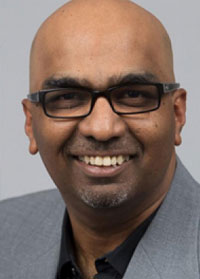A Legacy of Entrepreneurship at Michigan Ross

The Ross School of Business prides itself on supporting the leaders of tomorrow. Michigan Ross facilitates students' journeys to organizational leadership, whether climbing the corporate ladder or forging their path. By fusing cutting-edge research, transformational instruction, and real-world experience, Ross has been committed to fostering entrepreneurial talents and ambitions since its founding in 1924.
One of the most impactful resources offered by Michigan Ross to hopeful entrepreneurs is the Zell Lurie Institute. Founded in 1999 by a $10 million donation from Samuel Zell and Ann Lurie, ZLI strives to contribute to the type of entrepreneurial talent and education necessary to sustain a competitive advantage in today’s global economy primarily shaped by innovation. Additional donations keep ZLI at the forefront of entrepreneurship education, research, and action.
Known for its deep-rooted commitment to experiential learning, Michigan Ross empowers students to convert innovative ideas into successful business ventures. With its many offerings, such as courses, workshops, investment funds, competitions, and events, the Zell Lurie Institute supports undergraduate and graduate students in developing the skills and experience they need to start and fund the next great idea in business.
In this article, we explore a few exceptional entrepreneurs who used a Michigan Ross education and ZLI resources to become leaders of the future.

Satish Malnaik, Co-Founder & CEO, NextServices
Satish Malnaik, MBA ’04, has seen a lot of evolution in entrepreneurship at Michigan Ross. Encountering ZLI as a student was not Malnaik’s first brush with entrepreneurship; he had been an independent consultant before returning to school. But the vision he and his co-founders had for NextServices, a software and services platform that simplifies healthcare delivery, involved creating an entire service solution in a new domain. The team earned a Dare to Dream grant and the top prize at the 2004 Michigan Business Challenge.
“Those wins and the funding that came with them was a primary catalyst to get serious about our company,” said Malnaik. “It was also an affirmation—the school was saying our idea was worthwhile and worth giving capital to. If that award had not happened, would we have actually gone ahead and started NextServices? It’ll always be an unknown, but the fact is that ZLI was willing to sponsor and help us get started.”
As NextServices grew over the next 15 years, Malnaik remained active with ZLI. NextServices worked with David Brophy and Mary Nickson to present at the then-called Michigan Growth Capital Symposium, and Malnaik himself has appeared as a judge at many annual Michigan Business Challenge competitions, as well as served as an advisor for the Desai Accelerator and as an Alumni in Residence. Through all those experiences, Malnaik has seen the value an entrepreneurial education can bring.
ZLI can be a catalyst to bring about change, launch ideas, let students and alumni convert them to success.
“The impact that ZLI has is tremendous,” Malnaik said. “ZLI can be a catalyst to bring about change, launch ideas, let students and alumni convert them to success. The value of a support system while going through the entrepreneurial process is super critical, and its ability to help its students focus on entrepreneurship equips everyone to do it the best way possible.”

Shaily Baranwal, Founder & CEO, Elevate K-12
Shaily Baranwal, MBA ’07, found that her bold, non-conformist attitude and ability to collaborate with peers and mentors at ZLI were instrumental in her entrepreneurial journey. Baranwal took full advantage of the opportunities and connections on offer. She won the Michigan Business Challenge prizes and earned a Dare to Dream grant and a Social Impact award. Out of these experiences, Elevate K-12 (then Elevate Learning) was born.
In the present, Elevate K-12 has taught more than 100,000 low-income students. It has created online teaching jobs for over 3,500 teachers, mostly women, in the U.S.—and the experience has reaffirmed Baranwal’s belief in the value of entrepreneurial education.
Entrepreneurial education is essential for everyone, according to Baranwal, as it teaches life skills beyond starting a strong business. It encourages you to dream, actualize goals, and find resources. Entrepreneurship education is more than business formation; it's an essential life skill lesson. As more students become interested in entrepreneurship, Baranwal thinks more universities should offer it as a core subject.
What ZLI is doing and building with the support of Sam Zell and the broader University of Michigan community to create awareness about entrepreneurship is something I have not seen elsewhere, and it is remarkable!
“The University of Michigan has embodied supporting entrepreneurship,” she said. “I have seen it over and over in the last decade. What ZLI is doing and building with the support of Sam Zell and the broader University of Michigan community to create awareness about entrepreneurship is something I have not seen elsewhere, and it is remarkable!”

Scott Hanson, Founder & CTO of Ambiq Micro
For Scott Hanson, PhD ’08, the decision to become an entrepreneur was almost effortless. After years of research conducted in the course of earning his PhD in electrical engineering, Hanson had created the technology to build tiny chips that used less energy than any others on the market, opening up possibilities for IoT devices such as fitness watches, analog watches, smart clothing, smart credit cards, smart utility meters, wireless industrial sensors, wireless medical devices and a growing list of other energy-constrained devices. Today, what started as an idea in a lab between 2008 and 2010 has grown into an 80-person company that has shipped north of 50 million chips. If you’ve bought something from an electronics store in the last several years, chances are good that you own an Ambiq Microchip.
“I thought it was important technology, and I wanted to be the person who made it happen,” Hanson recalled. He didn’t have the business knowledge or connections to successfully commercialize, so he turned to friends at Michigan Ross as part of a founding team to begin putting their business idea through its paces. Every good scientist and engineer knows that testing is a critical step for success—and for Hanson, ZLI and the Michigan Business Challenge were the perfect test conditions.
Building a prototype doesn’t matter if you don’t have a sound business plan. Use the people around you to help you gain that business experience, as ZLI did for us.
As for critical lessons that he’d pass on to the next generation of entrepreneurs, Hanson has two. “As an engineer, I always believed the technology was everything,” he explained. “The business would be successful or not based on the technology. I now know that’s just a piece: the business and market strategy are all as important. Building a prototype doesn’t matter if you don’t have a sound business plan. Use the people around you to help you gain that business experience, as ZLI did for us.” And second, “Don’t be in a rush to leave the university!” Hanson said. “The minute you leave, you’re on the clock: you have investors, you have expected returns. At the university, you can sit and think and figure out the right path forward. Leverage the university’s resources, stay as long as possible, and really figure out the business.”

Heather Grisham, COO & CFO of NAAV Systems
Heather Grisham’s dive into entrepreneurship was the result of a perfect match. Thanks to 13 years of experience in the nonprofit sector, Grisham, MBA ’04, had extensive experience writing grant proposals— exactly what Eric Sieczka, MBA ’01, needed for his new company, Pixel Velocity. Grisham and Eric had been high school classmates and reconnected during Grisham’s very first class at Ross in 2001, and the rest fell into place from there.
Grisham’s entrepreneurship journey at Ross illustrates the transformative impact of its programming. She credits much of her entrepreneurial development to the institute, where mentors such as Paul Kirsch, David Brophy, and Tom Kinnear challenged and refined her ideas, filling gaps in her thinking. Grisham emphasizes the importance of beginning with the end-users in mind, a lesson she learned at ZLI and applied as she transitioned Pixel from a startup to an established company.
The team took full advantage of ZLI’s resources, from classes to the Dare to Dream grant to the business plan competition circuit—all critical experiences in helping the team understand what investors wanted and how to frame their pitch. The Dare to Dream grant, in particular, was valuable for the young company since it provided both funding and co-working office space that enabled them to interact with the other entrepreneurs sharing the space.
ZLI collects the best and brightest minds and encourages them to innovate the program—and it’s not just an academic exercise. If you’re operating within it, it’s really easy to understand the essence of what being an entrepreneur is.
“What’s great about ZLI is that it’s so entrepreneurial itself,” Grisham explained. “ZLI collects the best and brightest minds and encourages them to innovate the program—and it’s not just an academic exercise. If you’re operating within it, it’s really easy to understand the essence of what being an entrepreneur is. Even if you don’t want to start a business, there’s a way to think entrepreneurially that has value in every setting. You really pick up an innovator’s mindset.” That innovator’s mindset has served Pixel well as the company has transitioned from a small, early-stage startup to an established Industrial Internet of Things company that is nearly 20 years old with almost $30 million in funding.

Angelique Johnson, CEO & Founder of MEMStim
As a University of Michigan graduate, Angelique Johnson, PhD ’11, benefited greatly from the entrepreneurial atmosphere prevalent during her time at U-M. Seizing the opportunity to expand her learning, she participated in the workshops and networking mixers offered by the Zell Lurie Institute with peers and friends. This led her to pitch her company, MEMStim, a firm specializing in implantable electronics that treat neurological disorders, at the 2011 Michigan Business Challenge. Although the experience differed from her lab experience, it indicated the unique entrepreneurial possibilities available to U-M students.
“It was trial by fire. They tore us to shreds,” she recalled. But Johnson’s career as an entrepreneur was not over, nor was the competition. After working with Paul Kirsch, then-associate director of the Zell Lurie Institute, and Anne Perigo, also an associate director, MEMStim won first place in the Michigan Business Challenge—a total of $27,000 in prize money.
“Anne and Paul were huge influences,” Johnson said. “Together, they helped me through the process. There were no other African American women competing in the same business plan competitions I was, especially on the engineering side. It was a bit intimidating to step into that arena, but they helped me think through my idea from a business perspective and made me feel welcome.”
Eight years later, funders and customers continue to buy into MEMStim’s big idea— and Johnson hasn’t left entrepreneurial education behind. In addition to her CEO role at MEMStim, she is an assistant professor gratis in the College of Engineering at the University of Louisville. She enjoys teaching the next generation of entrepreneurs at the school and the broader Louisville community. The experience has put her in a position to provide the same kind of mentorship that helped her flourish and reflect on her student days.
I felt welcome at ZLI even though I wasn’t a business student, and I really value the time and honesty they gave us that helped MEMStim develop. Now that I’m an educator myself, I see that programs can struggle to balance entrepreneurial training with real-world implementation. The ZLI program found that balance.
“What’s happening at the Zell Lurie Institute is unique because it brings the business school together with the entire campus and asks, what is the best business we can create with all this talent?” Johnson explained. “I felt welcome at ZLI even though I wasn’t a business student, and I really value the time and honesty they gave us that helped MEMStim develop. Now that I’m an educator myself, I see that programs can struggle to balance entrepreneurial training with real-world implementation. The ZLI program found that balance.”







